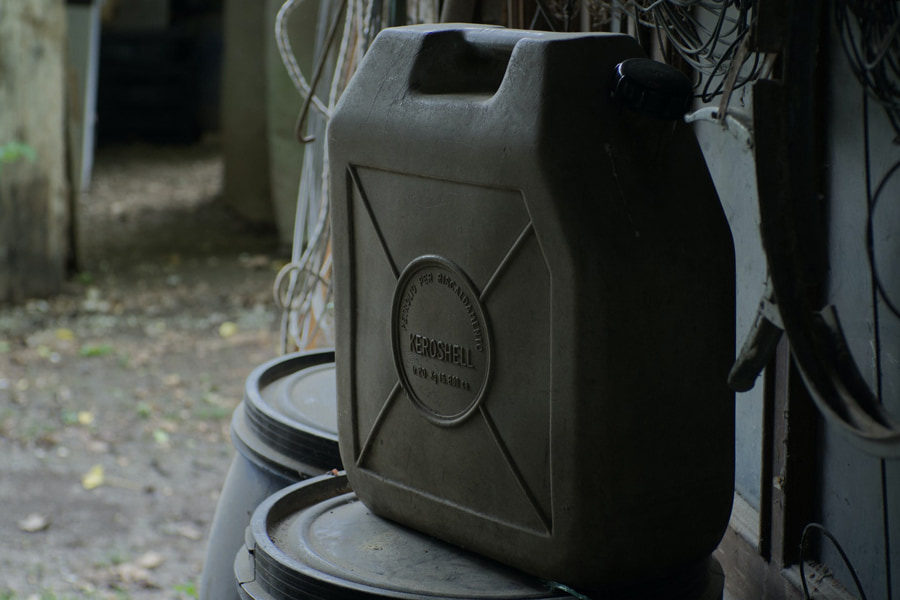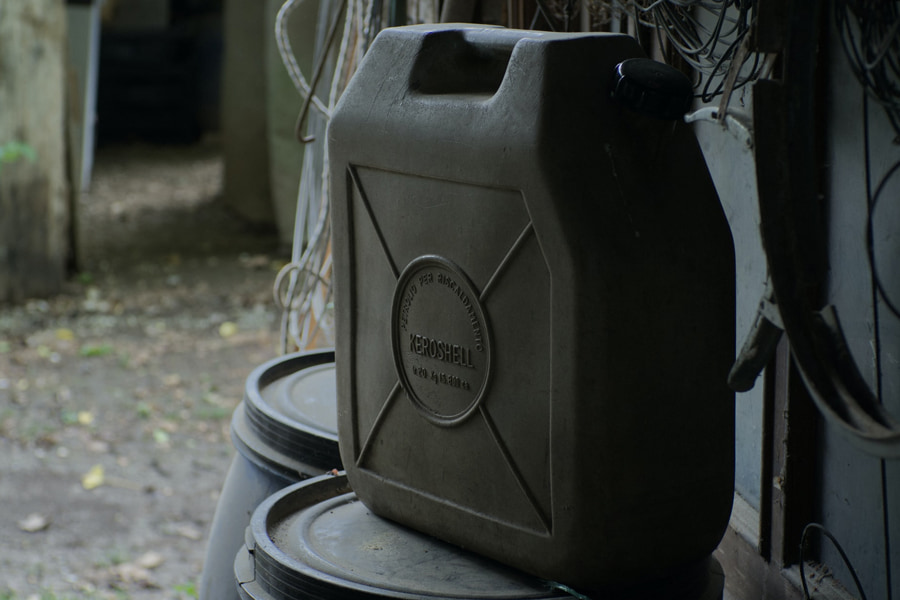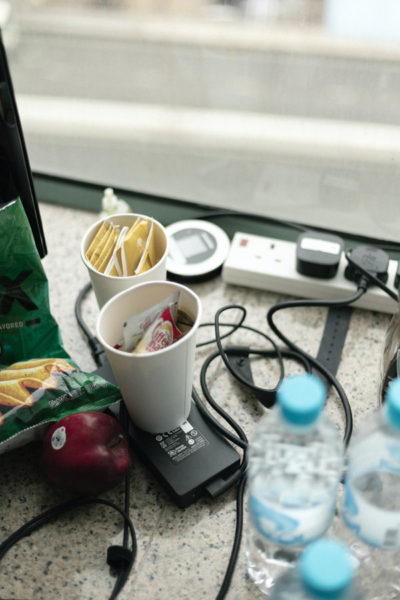
We always like to lead comfortable and luxurious lifestyles. So, now we have come to a point in which we cannot live without particular amenities. Electricity is one such comfort. It is no secret that we need electricity all the time in our lives. Whenever there is a power outage, we lose that luxury as well as mental happiness. So, now, it is necessary to have generators. It is not only during such emergencies that we would need generators. Even on certain other occasions, we may need generators when we do not have access to electricity. In this article, we thought of telling you about the fuel types of generators.
A Brief Introduction to Generators
Before telling you about the fuel types of generators, we thought of telling you about generators a bit. After that, we can get to know descriptively about the fuel types of generators.
A generator is a piece of electric equipment that comes with a number of different attachments. You may use them to acquire electricity if there is a power outage or blackout. Of fact, a blackout might happen for a multitude of reasons. However, additional accessories are necessary for the generators to function properly. When purchasing or deciding to purchase a generator, there are several factors to consider. Despite the fact that many manufacturers claim their portable generators are plug-and-play, this is not always the case. To use a portable generator effectively, you’ll need the right accessories. It makes no difference whether the generator is for the house or for RV travel. Generators are also useful in numerous professions, including electricians and HVAC experts.
The two most important factors to consider when purchasing a generator are ease of use and safety. Some add-ons are necessary for proper operation, while others make the preservation and starting procedures easier.
Safety Concerns when using Generators
It is pretty important to focus on this section even though the main content is about the fuel types of generators. Without knowing this part, getting to know about generators is of no use.
It is also important to be aware of the dangers that come with using generators. If you use generators, you should be aware of the safety requirements that apply to them. It is critical that you take all necessary safety precautions. You should double-check that your generator is in good working order. You might find up in a perilous scenario if you utilize a generator incorrectly.
Carbon monoxide poisoning is occur due to engine exhaust. Even if you cannot smell the pollution, you might be exposed to carbon monoxide. When operating a generator, if you become unwell, dizzy, or weak, get some fresh air as soon as possible. If you are having severe symptoms, you should get medical attention immediately once. You should insert batteries in carbon monoxide detectors. Take the necessary measures after reading the manufacturer’s instructions. There is a risk of electric shock, electrocution, and fire. As a result, you must exercise caution when utilizing generators. Understanding why we need generators is just as important as knowing how to operate them.
Outside, away from the main buildings, you should place the generators. In enclosed structures, generators are used. Result is the massive amounts of carbon monoxide, which can be fatal. Therefore, keep generators at least 15 feet away from open windows and out of the home. This is to keep contaminants out of your home, workplace, and the homes of your neighbors. In addition, you must keep the generator dry. And we encourage that you read more about this.
What are the Fuel Types of Generators?
Alright. Now, we can move ahead and get to know what the fuel types of generators are. Let us make a list of it first.
- Gasoline
- Liquid propane
- Natural gas
- Diesel
- Hybrid
- Tri-fuel
Now, we can get to know about each of them in terms of the fuel types of generators. With that, you would be able to get a comprehensive understanding of it. So, here we go.
1. Gasoline
Because gasoline is widely available, you can use it to power a portable generator that can run from gasoline. In the portable generator industry, gasoline generators are efficient and dominant. This is most likely due to the compact engine designs that have evolved over time, as well as the abundant supply of gasoline. 6 pounds per gallon, 2 to 5 portable gallons, as a result, the generator is simple to operate and maintain. These sorts of gasoline tanks are typically common at workplaces. You can easily keep them for a few months because costs fluctuate dramatically depending on demand by season and use levels. However, if you want to store for an extended period of time, you will need to pay extra for a gasoline stabilizer. If you do not, you would need to put an inventory turnover timetable in place to keep it fresh.
Because of its volatility, gasoline is not as safe as other fuels. Leaks from the containers can pose a threat and discolor everything they come into touch with. It is also not the most environmentally friendly fuel because it emits more pollutants than other fuels. In the event of a storm or other natural catastrophe, gasoline may become a dangerous substance. If the electricity goes out, service stations would not be able to pump petrol unless they have backup generators. You may store several gallons of fuel for later use, however, if you need fuel for more than a week or two, the amount of fuel you have on hand can quickly become excessive.
DuroMax Gas Powered Portable 12000 Watt-Electric Start-Home Back-Up & RV Ready, 50 State Approved Generator
DuroMax’s 12,000-watt portable generator has the power of a home standby generator in a compact package. During a power outage, a storm, or a disaster, the XP12000E combines power and versatility, making it perfect for operating your home’s vital appliances and even central air conditioning. This equipment is portable and convenient to transport to a job site or when camping. You may select between a keyless electronic start and a recoil start on the XP12000E. The fully loaded power panel is powered by a 457cc DuroMax OHV engine, which allows the user to draw up to 12,000 watts of electricity. The panel has two 120V/20 AMPits outlets, one 120V/30AMP twist-lock outlet, a 120/240V 30AMP outlet, and a 50-amp heavy-duty outlet to meet the most demanding applications. At the same time, the 120-volt receptacle may receive both 120 and 240 volts.
A-iPower SUA12000E 12000 Watt Portable Generator Heavy Duty Gas Powered with Electric Start for Jobsite, RV, and Whole House Backup Emergency
The iPower A-SUA12000 has a starting power of 12,000 watts and an operating power of 9,000 watts. You can charge your gear whether you’re at work, at camp, or at home. Its powerful 459cc OHV 4 stroke engine includes a low oil alert light and will shut down automatically if the oil level falls below a certain level. They ensure that your generator continues to function year after year. It has a 7-hour full-load run time and a 9-hour half-load run time thanks to its huge 7-gallon gasoline fuel tank. When you need to start your generator fast, effortlessly, and conveniently, the Electric Start option comes in handy. The SUA12000e generator will provide power to all of your critical equipment. In the case of an emergency, they include your air conditioner, refrigerator, and sump pump, as well as lighting and entertainment centers.
2. Liquid propane
Liquid propane is a widely available fuel. It usually weighs 4.2 pounds per gallon. LP fuel tanks are available in a variety of capacities, ranging from 20 lbs (4.75 gallons) for outdoor cooking stoves and gas grills to over 1000 gallons for houses, companies, and cottages. Long-term storage of LP is suitable since it is stable and does not depreciate. It is especially useful in backup and standby generator applications when bigger containers are available and guaranteed long-term power.
It is a good idea to keep an extra 20-pound gas grill on hand, not just for cooking but also for the portable generator. It’s believed that when gasoline becomes scarcer, propane will remain available but less in demand until people use up their stockpiles for cooking. Smaller tanks are more easily transportable, and utilizing a propane portable generator is comparable to using a gas-powered generator, with the exception that connecting the fuel source requires a bit more caution.
LP is also a cleaner-burning fuel than natural gas, with emissions of 30% plus or minus 10%. It does, however, create more methane. Another downside of utilizing LP is that it does not create as much power as gasoline per volume of consumption. The counterbalance might also be seen in the price, which is more consistent than gasoline but still varies depending on season and demand. You would need to compare normal production and use amongst devices to examine your economics. In open locations, LP dissolves fast, making it safer than a gasoline spill. However, if it is discharged in a confined location and lit, it can be explosive.
3. Natural gas
Natural gas is an alternative fuel that is becoming more widely available in larger cities due to its mobility in tanks. It is widely available for direct connection in a variety of sites via domestic supply. Natural gas has an even lower BTU basis than propane and produces around 10% less energy. This fuel would result in a 10% reduction in production for dual fuel LP/NG engines.
It may be stored in tanks similar to those used for propane for long periods of time. The main advantage of natural gas is the possibility to catch up right at home, as supply will not be guaranteed in the event of a power outage. Only a source connected to your exterior wall and a connecting hose to the properly equipped generator is required. Unless you establish the direct connection, you have an asset in the higher-cost tanks for utilizing NG. There will be some additional costs associated with the plumbing and hose connections for the direct connection. Many standby generators are to connect directly to natural gas or liquid propane supplies.
4. Diesel
Diesel is also available widely. However, being a heavier fuel, it pigments and collects dirt. Diesel may be stored for up to ten years since it is significantly more stable and steady. There are decades of rights when gasoline has been utilized because it was kept appropriately. Water contamination is a concern, however, it is frequently treated using Micron Filters at the tank outlet and fuel line purification. If the engine is properly set up, diesel fuel is one of the cleanest burning fuels. If not, substantial smoke and particle emissions can form. Diesel is also safer than gasoline since its fumes do not ignite as quickly as gasoline.
Diesel is much like any other fuel in terms of portability. With the new low sulfur supply, direct fuel costs have risen recently, although the economics of usage are better in the hours per gallon area. You may use a formula similar to the one shown above for LP comparison.
5. Hybrid
On a single generator, you can have the option of using several fuel kinds. In times of crisis, when you need a temporary emergency backup power source, bi-fuel (also known as dual fuel or hybrid fuel) generators provide solutions to fuel availability issues that invariably arise when you need a temporary emergency backup power source typically configured with an LP (propane) tank fueled generator.
Dual fuel generators also give users the option of using a more mobile free-standing generator for more routine applications when the fuel storage or clean-burning benefits of propane are preferred, while still being able to use a more mobile free-standing generator for more routine applications when using gasoline. This added level of versatility has proven to be very popular with our customers, providing them with a valuable alternative that allows them to switch between propane and gasoline fuel sources while remaining reasonably priced compared to owning and operating both a gas and a propane generator of comparable size.
Pulsar 7, 750W Dual Fuel Portable Generator with Switch & Go Technology, PG7750B
The Pulsar PG7750B dual fuel generator is a great choice for addressing your power demands when mobility and performance are crucial. At the stroke of a button, this dual fuel generator switches between gasoline and liquid propane. While the generator is running, Transition & Go technology allows you to switch from LPG to gas or from gas to LP. This generator is perfect for use on the job site, at home, or in the garden. This device, which comes with a powder-coated steel frame, no-flat tires, a fold-down locking handle, electric start, and cutting-edge technology, is an excellent addition to any portable power collection.
Pulsar G12KBN Heavy Duty Portable Dual Fuel Generator – 9500 Rated Watts & 12000 Peak Watts – Gas & LPG – Electric Start – Transfer Switch & RV Ready – CARB Compliant
The G12KBN can power big appliances in the case of a power outage thanks to its impressive 12,000W (GAS)/10,800W (LPG) output. This generator is portable and simple to store thanks to its strong chassis, handy drop-down handles, and 10″ never-flat wheels. With four 120V 20A AC outlets, one 120V/240V 30A Twist-Lock outlet, one 120V/240V 50A Outlet, and one 12V DC Output, you can power a variety of devices simultaneously.
6. Tri-fuel
Whether in a crisis or for ordinary business or residential use, the fuel you choose can make the difference between having electricity and not having power. Why not have a single generator that can run on numerous fuel types? Furthermore, why settle for a traditional standby generator that is inflexible and immovable when you may want mobility at some point?
Tri-fuel (also known as hybrid-fuel or multi-fuel) generators address fuel supply concerns that always arise during times of crisis when you require a temporary emergency backup power source, which is commonly equipped with an LP (propane) tank fueled generator. Tri-fuel generators provide users with the ability to use a more mobile free-standing generator for routine applications with gasoline and on a non-rigid frame generator while having the option of mass fuel storage (by LP), unlimited natural gas provisions from public utilities, or clean-burning benefits of natural gas and/or propane, and are preferred while having the ability to use a more mobile free-standing generator for routine applications with gasoline and on a non-rigid frame generator (such as a home standby).
Conclusion
In this article, we looked into the fuel types of generators. And we think that we could give you a good idea here. Also, we hope that you would be able to choose the generator that suits well for you. If you’d like to know more about generators, you can try history of generators, early versions of generators, types of generators, why do we need generators?, general uses of generators, how a generator works, warranty of a generator, market availability of commercial generators, generator accessories, portable generators, maintenance of diesel generators, market stats for generator industry, impact of Covid-19 on generator industry





3 comments